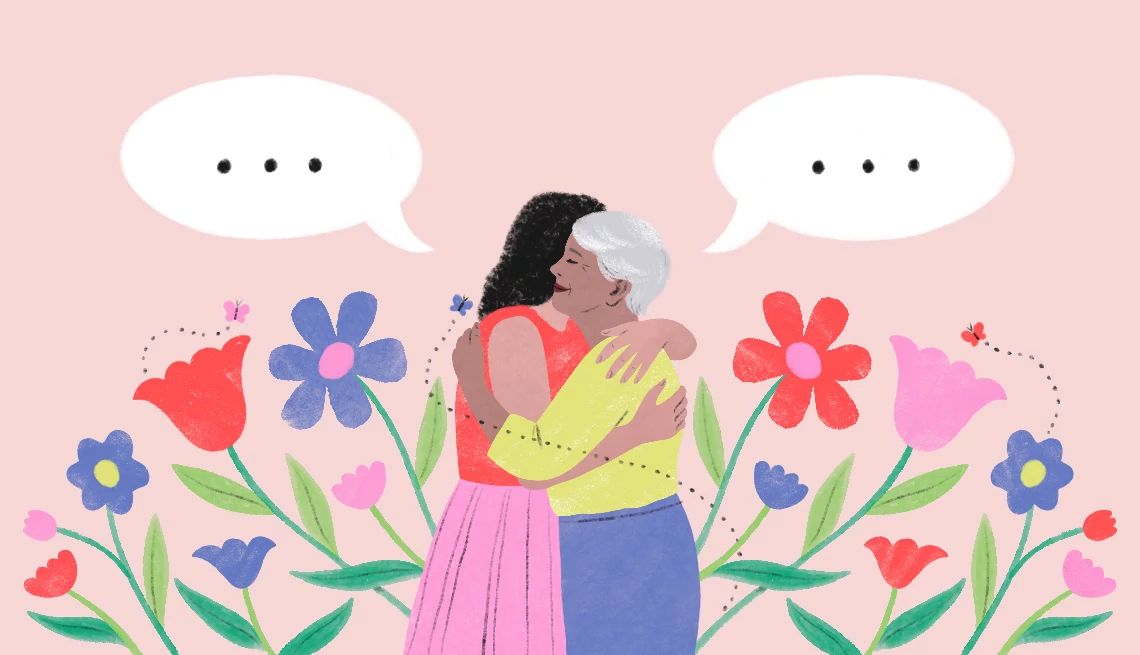AARP Hearing Center


Welcome to Ethels Tell All, where the writers behind The Ethel newsletter share their personal stories related to the joys and challenges of aging. Come back Wednesday each week for the latest piece, exclusively on AARP Members Edition.
“Good night, I love you.”
My daughter responds with an “I love you” of her own as we retreat to our own bedrooms. We exchange the words many times each day, sometimes on text or Snapchat, sometimes face-to-face; the words have become part of our routine. I made a very conscious decision when my kids were infants to say “I love you” to them, and to never stop saying it.
Somewhere during their early adolescent years, it began to feel a little awkward. They started to shy away from parental affection, and I was tempted to pull away, too. I noted the discomfort in the delivery of the words that were once so familiar, but I remembered my vow and forced myself to keep saying the words, even when my kids seemed not to want to hear them. We’ve even talked about why it’s important to speak the words. No regrets, right? You never know when someone’s last day alive is. Never miss a chance to make someone feel loved. No harm was ever done by saying “I love you.”
And so we are, and always have been, a family heavy on “I love you”s. But that wasn’t the case when I was a child. The first time I remember hearing my mom say “I love you” was when I was 21 and just out of college. We sat in a church pew for the funeral of my college friend’s sister. At 16 years old, she had been killed by a drunk driver. Like any unexpected death, hers was a stark reminder of just how precious life is, which must have prompted my mom to remind me of her love and appreciation for me. She leaned over and whispered the words into my ear.
“I love you.”
I knew she was grateful it wasn’t me in the casket on that day. But the unexpected and unfamiliar words made me cringe. After decades of not hearing “I love you,” it felt too uncomfortable to bear. I knew my mom loved me, but I didn’t need to hear it spoken to confirm that or to feel loved. I also felt an unwelcome pressure to say it back to her, which I did — I mean, how could I not?




































































You Might Also Like
Wedding Gifts Deserve Thank-You Cards
Handwritten expressions of gratitude aren’t passé, our etiquette expert says
How to Stop Turning Into Your Parents
Aging is inevitable, but becoming old isn’t. Joel Stein ponders how to age successfully
99 Great Ways to Save 2025 Edition
Stretch your dollars — and cut costs on groceries, travel, entertainment and more